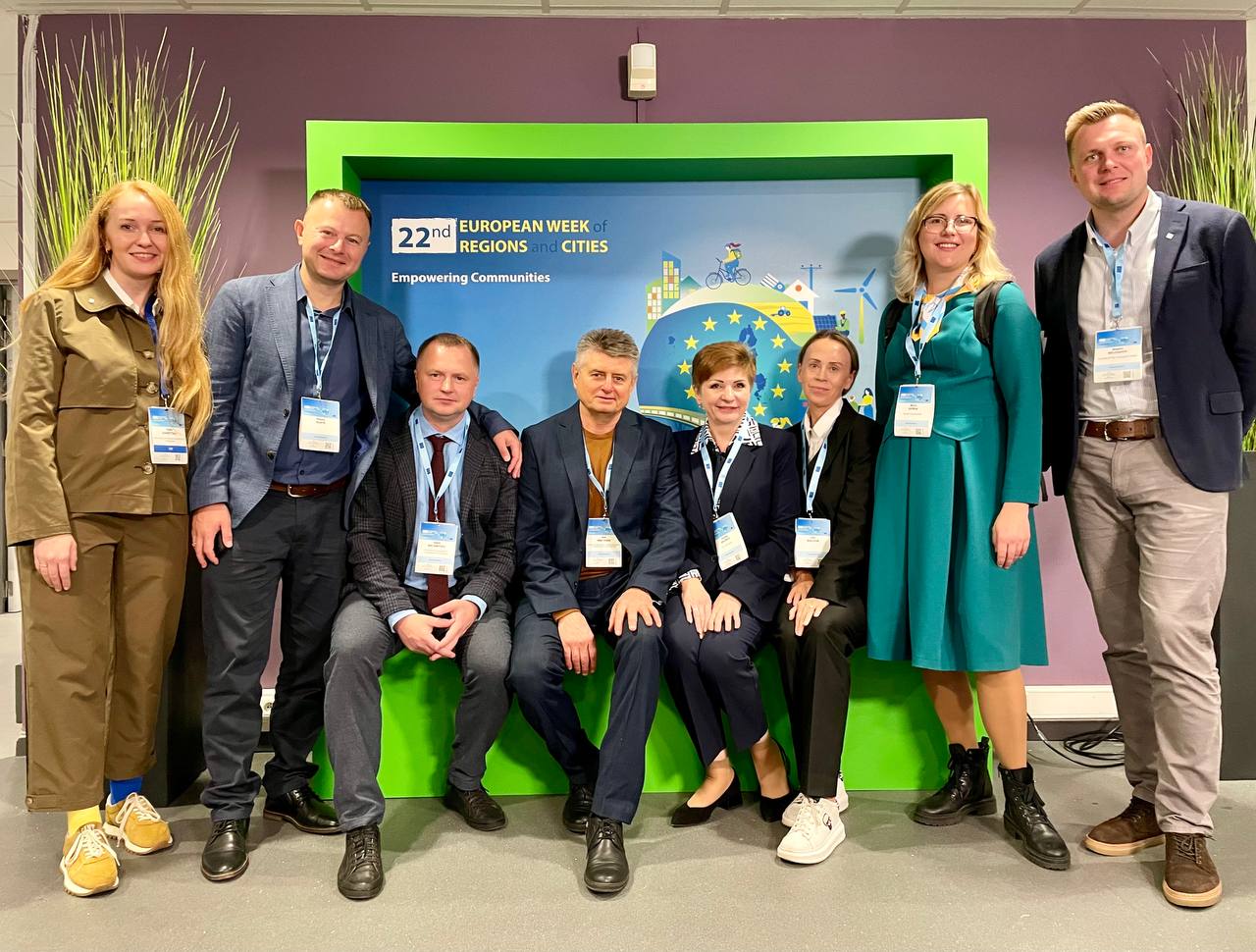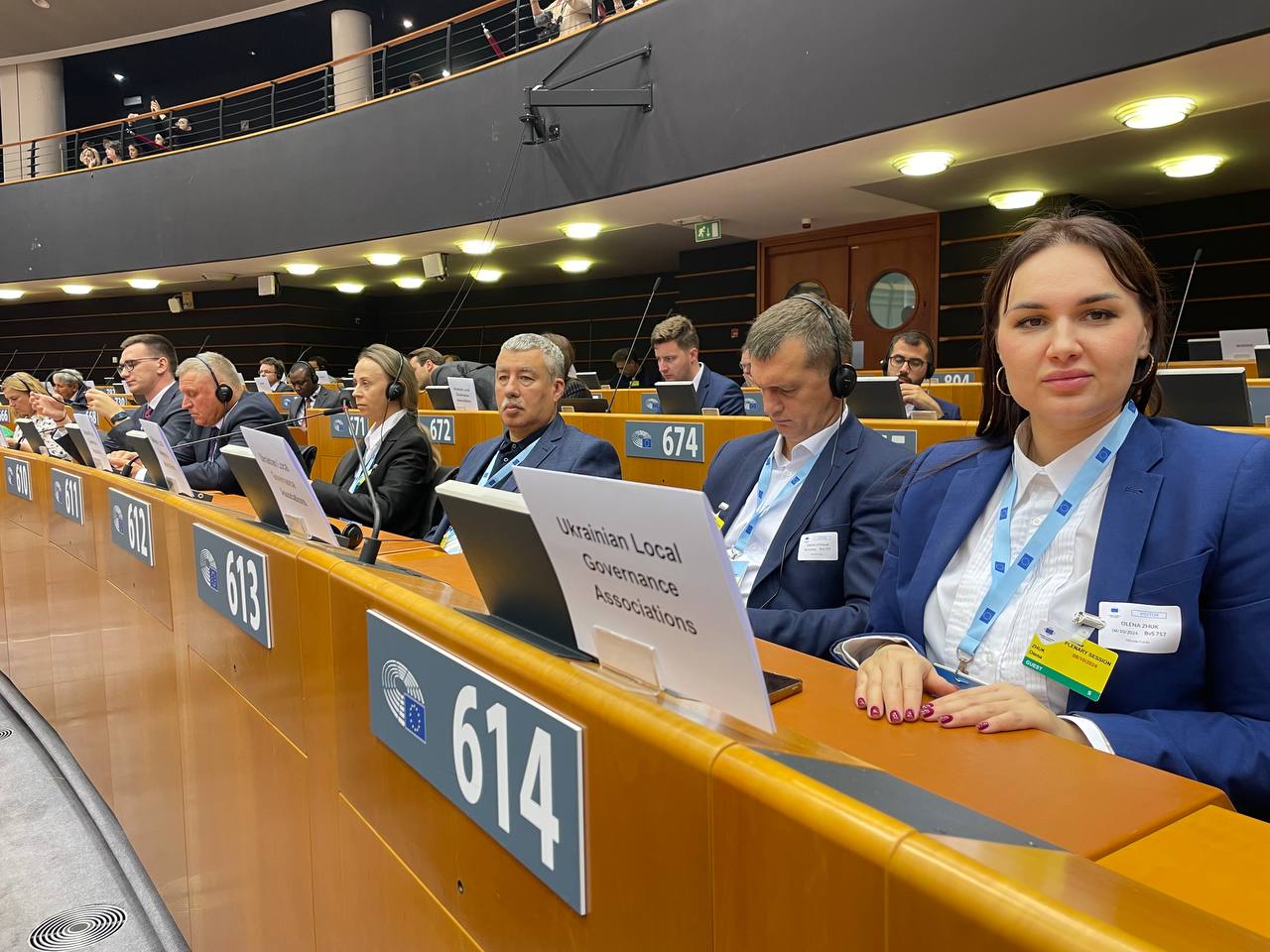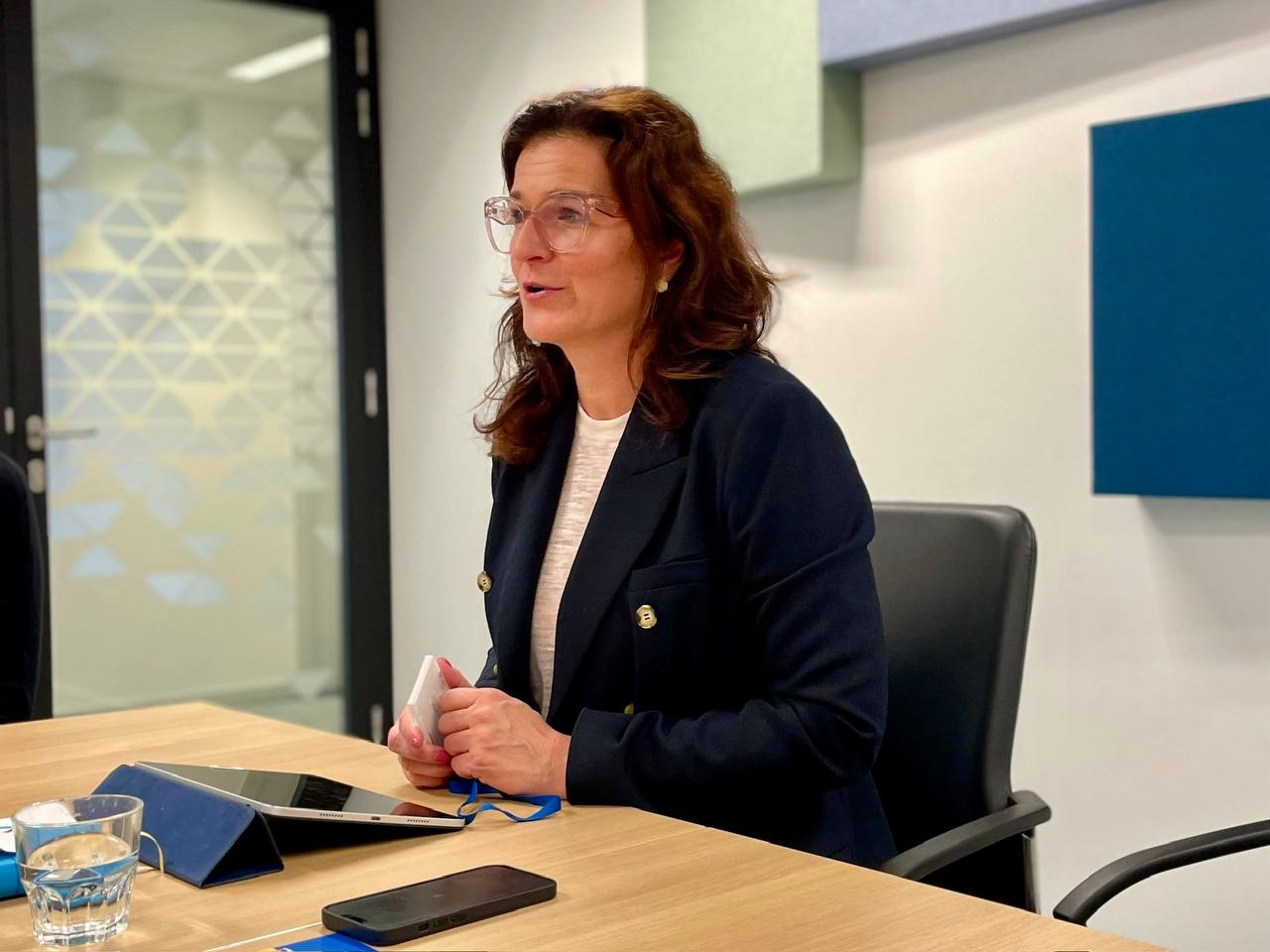This website uses cookies so that we can provide you with the best user experience possible. Cookie information is stored in your browser and performs functions such as recognising you when you return to our website and helping our team to understand which sections of the website you find most interesting and useful.
Community leaders visited Brussels for an advocacy visit

The visit was organized by the Cities4Cities|United4Ukraine initiative on October 7-11 with the support of the Polaris Program “Support to Multi-Level Governance in Ukraine”.
The visit took place within the framework of the European Week of Regions and Municipalities, the largest event on local development in the EU, organized by the European Commission’s Directorate-General for Regional Development (DG Regio) and the Committee of the Regions. The purpose of the visit is to strengthen the role of local governments and local government associations in the process of Ukraine’s European integration.
Thanks to Cities4Cities, with the support of the Polaris Program “Support to Multi-Level Governance in Ukraine”, the leaders of the All-Ukrainian Association of Amalgamated Territorial Communities, the All-Ukrainian Association of Communities, the Ukrainian Association of Rayon and Oblast Councils, and a representative of the Department for Coordination of International Technical Assistance of the Cabinet of Ministers of Ukraine met with representatives of the European Commission (DG Regional Development and Enlargement), the Committee of the Regions, European local government associations, and colleagues from different European countries – Belgium, France, Norway, and Sweden.
According to experts of the Swedish Association of Local and Regional Authorities, almost 70% of EU legislation has a direct impact on local development in member states, especially in such areas as economic and territorial cohesion of the EU, environmental protection, transport, agricultural and rural development, procurement, etc. For example, according to the EU’s annual report on the state of development of regions and cities, 8 out of 10 euros allocated for the implementation of the Green Deal, the EU’s policy to reduce carbon emissions and combat climate change, are spent at the local level.
“Ukraine’s fulfillment of the requirements in these areas will demand significant investments, including at the local level. Therefore, it is extremely important that local governments, through associations, have a voice at every stage of the negotiation process. Sweden has this experience and we are happy to share it with our Ukrainian partners,” says Magnus Liljeström, Senior Advisor at SALAR International.

An important step in strengthening the role of local self-government in Ukraine’s European integration process should be the creation of a joint advisory committee to the Committee of the Regions, the European Commission’s advisory body that is the voice of local government in the EU.
“The Committee’s mandate expires next year in January, but I really hope that during the next mandate we will not only work within the working group with Ukraine, but we will come to the creation of a Joint Advisory Committee, which can become a more powerful tool than we have now.We have such committees with other countries that are on the way to the European Union – with Montenegro, with Serbia, with Macedonia. The most important task is to prepare local government professionals for European integration,” shared her expectations for strengthening the role of communities in European integration Aleksandra Dulkiewicz, Head of the Working Group on Ukraine at the Committee of the Regions, Mayor of Gdansk, Poland.

The committee will consist of 12 representatives of local governments from Ukraine and 12 members of the Committee of the Regions. This tool will involve the experience of European colleagues in assessing the negotiation process between Ukraine and the EU from the perspective of local self-government.
Other important topics for discussion during the visit included the involvement of local governments in the process of rebuilding Ukraine and expanding the number and geography of European programs available to Ukrainian communities.
“It is important that at least 20% of the funds under the EU-supported Ukraine Plan are directed to the subnational level. – said Christian Larsen, Delegated Expert of the European Commission’s Directorate-General for Enlargement, during the meeting. – “Starting in the new year, we expect Ukraine to introduce a clear public finance management mechanism that will ensure the transfer of funds from the state to the local level for the implementation of reconstruction projects.”
Also, the European Commission is thinking about a mechanism of cooperation with Ukrainian state-owned banks, which will allow small communities to receive interest-free loans for project implementation.
______________
Cities4Cities | United4Ukraine are partnership initiatives that joined forces in September 2022. The project helps Ukrainian communities establish inter-municipal partnerships with municipalities in Europe.
Cities4Cities was founded by the city of Sindelfinden (Germany) under the auspices of the Congress of Local and Regional Authorities of the Council of Europe. The United4Ukraine initiative was launched by SALAR International and the city of Lviv (Ukraine) with the support of the Swedish International Development Cooperation Agency (Sida). Since 2024, Sities4Cities | United4Ukraine has been a part of Sweden’s flagship reform cooperation program Polaris “Supporting Multilevel Governance in Ukraine”.
Strategic partners: UCBI (USAID), Prosvita Institute, Hanns Seidel Foundation, Association of Ukrainian Cities, All-Ukrainian Association of Amalgamated Territorial Communities, All-Ukrainian Association of Hromadas, Ukrainian Association of Rayon and Oblast Councils.

